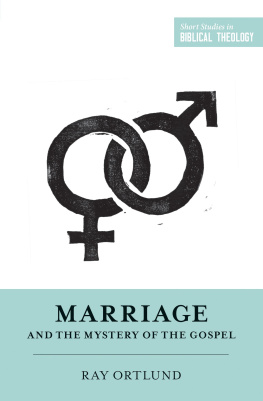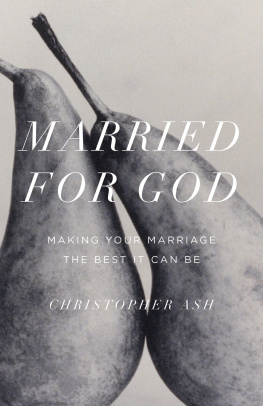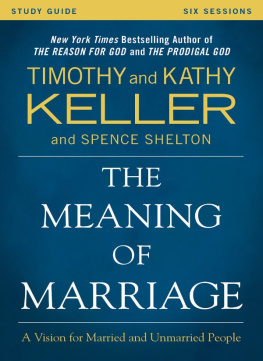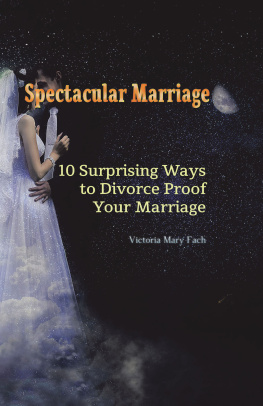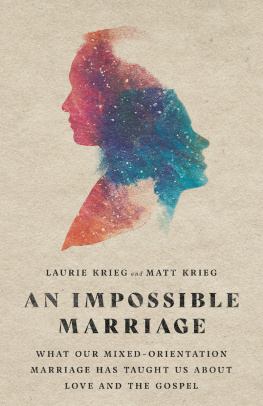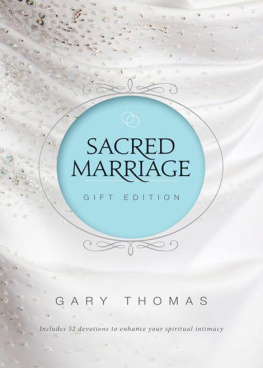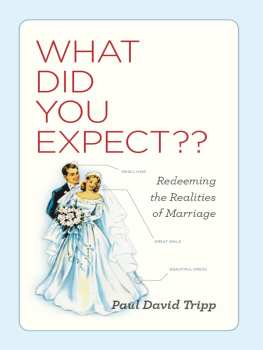Thank you for downloading this Crossway book.
Sign-up for the Crossway Newsletter for updates on special offers, new resources, and exciting global ministry initiatives:
Crossway Newsletter
Or, if you prefer, we would love to connect with you online:
The narratives of Genesis, after chapter 3, include many scenes of married life, with human follies galore, including the bizarre (Gen. 29:3130:24). These less than exemplary marriages leave us rolling our eyes. It did not take the people of God long to drift far from Eden. But how could it otherwise? The people God draws to himself are sinners. God seems to be attracted to the most hopeless cases. So as we read the Genesis accounts of Abraham and Sarah, Isaac and Rebekah, Jacob and Leah and Rachel, we intuitively make allowances for the eyebrow - raising episodes in their lives. What the Bible records, it does not always condone.
The Law
The law of Moses is another matter. The law commands. That is the point. And many of these ancient laws are obviously admirable. For example, Deuteronomy 24:5 commands, When a man is newly married, he shall not go out with the army or be liable for any other public duty. He shall be free at home one year to be happy with his wife whom he has taken. The last clause there, whom he has taken, does not imply force. It restates the intimacy of and hold fast to his wife in Genesis 2:24. The emphasis of the law is on the exemption a man should be given from military and other forms of compulsory service for the first full year of married life, to be happy with his wife. (A similar pronouncement is found in Deut. 20:7.) But this law is even more delightful than it at first appears, for a literal translation of the Hebrew verb yields a richer meaning: He shall be free at home one year and shall give happiness to his wife (NASB). It is not the husbands happiness that is commanded; it is the wifes happiness, nurtured by the husband.
Who today would not appreciate this ancient law? Other laws of Moses do not immediately satisfy our moral sensibilities today. I will cite one in a moment. But the concerns we bring to the Mosaic law might be moderated, to some degree, if we realize what God was accomplishing by it. The law of Moses was never meant to define the zenith of human moral grandeur. The Bible itself says that the law was not faultless and that it eventually became obsolete (Heb. 8:7, 13). In its limited capacities, the law failed to uphold the moral standards of Gods ancient people, and they fell under the judgment of God. What made the Old Testament legal arrangement between God and his people unsustainable was not a moral flaw in the law itself but something familiar to us all: human weakness.
What the New Testament clarifies is this: within the flow of the Bible as a whole, we should see the law of Moses as something added (Gal. 3:19). That is, the law was built into the Bible as a sidebar, temporarily running parallel with the gracious promises of God. The promises come first and define the main plot in the biblical story. The promises, therefore, by taking precedence, define the larger context for understanding everything in the Bible, including the law. And this addition of the law of Moses was valid only until the coming of Jesus, who is himself the final standard and true fulfillment of everything promised and commanded by the Bible from cover to cover. Everything the people of God failed to be and do, Jesus was and did for us all. He, not the law, is the defining center of how God relates to us. So the Bible has a forward tilt built in, with all aspects of the Old Testament leaning toward Christ: And the Scripture, foreseeing... (Gal. 3:8).
But the law, provisional though it was, made a real contribution. In its historical setting, as God led his people toward the Promised Land in Canaan, trouble awaited them there. Canaanite culture was a moral sewer, and Israel was a dry sponge. So before God threw that sponge into that sewer, he soaked the sponge in the oil of a culture of holiness. He gave Israel their own culture, defined by the books of the law, Exodus through Deuteronomy. By soaking in the laws of purity and diet and sacrifice and worship and all aspects of holiness, the people could be set apart to God and protected from moral pollution in Canaanin theory, anyway. Sadly, the people did not obey the law. But it had a noble purpose in its time (
Then Jesus came. He obeyed God, fulfilling the law thoroughly (Matt. 5:17). In his very person, Jesus embodied the full meaning of both the promises and the laws of the Old Testament. More than anyone else, he qualified as an expert in the law. To cite a marriage - related question he was asked, he taught us how to perceive the divorce law of Deuteronomy 24:14. He explained that this law was more a concession to our moral obtuseness than a declaration of the heart of God:
They said to him, Why then did Moses command one to give a certificate of divorce and to send her away? He said to them, Because of your hardness of heart Moses allowed you to divorce your wives, but from the beginning it was not so. (Matt. 19:79 )
What his contemporaries perceived as a command, Jesus saw as an allowance. A command calls for moral elevation and should be sought, but an allowance adjusts downward and might be accepted, though reluctantly. Jesus saw the Mosaic law of divorce as a decline from the beauty of the beginning, that is, the garden of Eden. And he certainly did not say that the origins of marriage in the garden were no longer relevant to our problems today. He saw Gods gift in Eden as the norm to be admired and pursued and protected, and he saw the law of divorce as a tragic concession, a last resort.
Here is the point. Jesuss understanding of the divine intent behind this divorce law repositions us to interpret the entire law with deeper insight. God was not taking highly civilized people who spent their Sunday afternoons reading Shakespeare and singing madrigals and degrading them with the law of the jungle. Insteadwith thanks to J. R. R. Tolkien for the imagerywe can think of the law of Moses as God speaking into an orc culture, regulating its worst features as the beginning of a long process of restoring them to their lost elf culture. God does not accomplish this miracle all at once, because the change he has in mind is not a simple matter of polish and manners. God intends to re - create his people from deep within, and then cultivate their behavior in every respect, so that ultimately Mordor is transformed into Lothlrien. This merciful purpose of God runs through stages of time, as the Bible progresses from the lost garden of Eden to the provisional law of Moses to the glorious culmination in Jesus. And God wisely started with his old-covenant people Israel right where they were in history. From there he patiently led them step by step toward the better world he had promised, a world Jesus alone can create.
So then, the striking thing about the laws of the Old Testament is not that some of them are beneath the modern conscience but that they are above the other law codes of the ancient world. As troubling as some Mosaic laws are to us today, in their own time they were a step in the right direction. To quote a scholar in this field,
An example of a Mosaic law which strikes us today as oddly remote and mystifying is the law concerning levirate marriagefrom the Latin levir , meaning brother-in-law. The law states:
Next page
